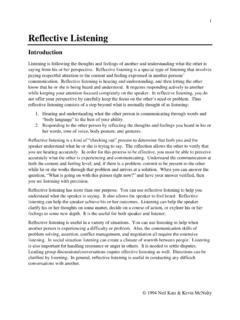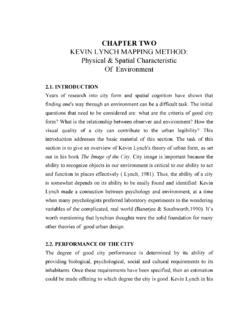Transcription of Does Homework Really Improve Achievement? Kevin C. …
1 Homework 1 does Homework Really Improve achievement ? Kevin C. Costley, Associate Professor of Early Childhood Education Arkansas Tech University Date of Publication June 10, 2013 Homework 2 Introduction and Literature Review Homework has been a perennial topic of debate in education. Attitudes toward Homework have gone through many cycles. (Gill & Schlossman, 2000). During the first few decades of the 20th century, educators commonly believed that Homework helped create disciplined minds. By 1940, growing concern that Homework interfered with other home activities sparked a reaction against the practice of Homework .
2 This trend was reversed in the late 1950s when the Soviets launch of Sputnik led to concern that education in the United States lacked rigor; schools viewed more rigorous Homework as a partial solution to the problem. By 1980k, the trend had reversed again with some learning theorists claiming that Homework could be detrimental to students mental health. Since then, impassioned arguments for and against Homework have continued to surface (Marzano & Pickering, 2007). We now stand at an interesting crossroads in the evolution of the Homework debate. Arguments against Homework are becoming more popular and intense. Arguments are in the educational literature. One example is an editorial in Time magazine that presented these arguments against Homework as truth without much discussion of alternative perspectives (Wallis, 2006). Student achievement in schools has always been a concern for parents, students, and educators.
3 There have been several theories on the areas of what help students achieve. One of the main factors impacting student achievement has been the use of Homework (Collier, 2007). Opinions vary on whether or not Homework has positive effects on achievement . National statistics have shown that teachers are attempting to remedy low test scores by giving students more Homework (O Neill 2008). Researchers from Binghamton University and the University of Homework 3 Nevada conducted a study showing that although Homework may benefit some students, particularly high and low performing students; it is counterproductive for students who are average performing students (O Neill, 2008). Some believe that Homework can be beneficial, but is sometimes over used and the pros are outweighed by the cons.
4 Educators have to be careful not to over assign Homework assignments because Homework will cause additional stress on students (O Neill, 2008). Assigning hours and hours of Homework , sometimes called busy work can backfire by depriving students of free time they need to develop other skills. Homework should support what students learn in school (Cooper, 2007). O Neill advocates that educators make Homework moderate but meaningful so students can discover their own intellectual curiosity without excessive Homework forcing them to learn. Good and Brophy (2003) cautioned that teachers must be careful not to assign too much Homework . According to Education Week, an online survey of over 1,000 teachers, 500 parents, and 2,100 students conducted by MetLife. The study found that 77 percent of students and more than 80 percent of teachers and parents say Homework is important or very important. The study also reported that 75 percent of students stated they did at least 30 minutes, while 45 percent said they spend more than an hour on Homework each regular school day.
5 Yet 90 percent of students surveyed reported that Homework caused them additional stress, specifically students who received average or below average grades (O Neill, 2008). According to this study, Homework is causing additional stress on students. Another interesting detail about the online survey was that 40 percent of parents indicated that most Homework is nothing more than just busy work. Parents believed that teachers were not making Homework meaningful to their children. Homework 4 The reason most cited for giving Homework to students is that the practice can Improve students retention and understanding of the covered material (Collier, 2007). Homework has been researched many times to verify that students achievement is directly related to completing Homework .
6 Kohn (2006) reported that the longer the duration of a Homework study, the less positive effect Homework has on the student. MacDonald (2009) advocates there are no link between Homework and achievement for elementary school students. At the high school level, there is a small connection that disappears when sophisticated statistical methods are employed. Correlational studies suggest the Homework - achievement link for young children on broader measures of achievement appears to be weak (Cooper, 2007). Researchers at the elementary school level show: a) there is a very small relationship between the amount of time spent in home study and pupil progress; b) Homework is not significantly related to achievement as measured standardized tests; c) Homework at the elementary-school level has a slight positive relationship to success in high school; d) voluntary Homework has about as many values as compulsory Homework ; and e) the benefits of assigned Homework are too small to counterbalance the disadvantages (Goldstein, 1960).
7 Students in elementary school who receive Homework perform no differently than those who do not. In-school supervised study had a greater impact on achievement than Homework , and achievement did not increase when students spent more time on Homework (Cooper, 1994). Cooper cautions that this finding does not mean that elementary school students should not receive Homework . Rather, parents should not expect Homework to affect achievement . At the elementary school level, Homework is important because it promotes good study habits and positive attitudes toward school, and because Homework makes it clear to the student that learning can also take place outside of the school environment (Cooper, 1994). Homework 5 Bennett and Kalish (2006) criticized both the quantity and quality of Homework .
8 They provided evidence that too much Homework harms students health and family time: They also hey asserted that teachers are not well trained in how to assign Homework . The authors suggested that individuals and parent groups should insist that teachers reduce the amount of Homework , design more valuable assignments, and avoid Homework altogether over breaks and holidays. Cooper, Robinson, and Patall (2006) issued a strong warning about too much Homework . Even for these older students, too much Homework may diminish its effectiveness or even become counterproductive ( ) . The Homework Literature Review stated that excessive Homework may impact negatively on student achievement (2004, ). Apparently, if teachers give too much Homework , students may be overwhelmed, not complete the Homework and ultimately achieve nothing a result. Homework Can Be Beneficial; Yet Nothing Replaces What is Learned in The Classroom The research mentioned above proved that students did not show considerable gains in achievement after completing Homework assignments.
9 Some Homework is valuable and can be used to reinforce the content and skills taught in the classroom. However, nothing can replace the instructional time of a regular school day. According to Kohn (2006), teachers should assign Homework only when they can justify that the assignments are beneficial. Kohn (2006) believes that teachers should try to involve students in deciding what Homework , and how much, they should do. More Discussion and Literature Review Theorists, Jean Piaget and Lev Vygotsky found that in order to learn, children must add new knowledge to old knowledge-kind of like building a bridge. The bridge provides a structure Homework 6 to hold future information. Because of this, younger students can only concentrate for short periods of time.
10 Students also have difficulty blocking out distractions. These facts taken together explain why one minute Johnny is doing his Homework , and the next minute he is in his room with Nintendo blaring away. Overloading a child with more Homework than he can handle simply means that the Homework will not get done (T. Leggett, (personal communication, November 15, 2011). My school district just recently faced a battle with parents about whether or not Homework is beneficial. Parents were upset because their children were not coming home with enough Homework . The parents that attended the meetings were very passionate that they wanted their children to have more work to do at home. It was finally agreed that grades first through fourth are given at least one hour of Homework each school night. Kindergarten is required to have at least 30 minutes of Homework each night as well. I find that to be a little bit extreme for 5 year old students to complete two and half hours of work at home each week.)
















